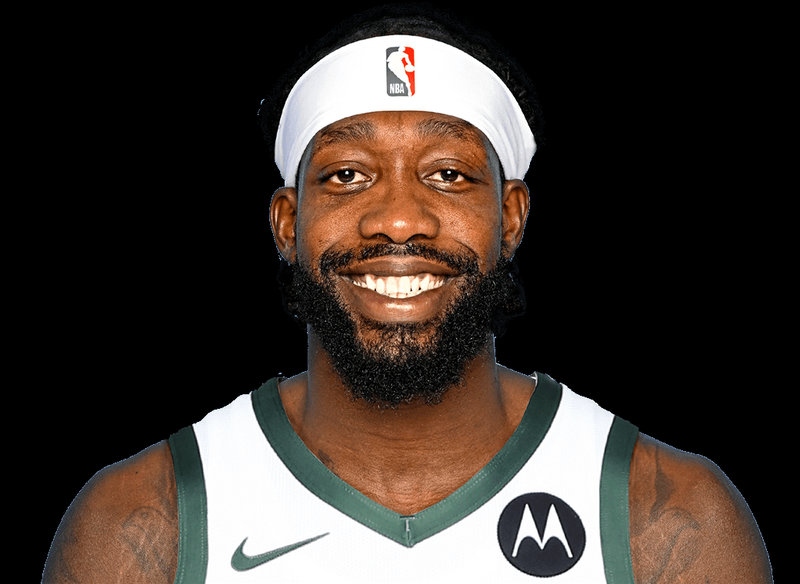Does Patrick Beverley’s passion sometimes overshadow his fundamental defensive skills?
Does Patrick Beverley’s fervor sometimes eclipse his basic defensive skills? This question has provoked some lively debate among basketball analysts, fans, and players. Known for his tenacious and enthusiastic on-court presence, Beverley has built a real following as a gritty defender. But his intensity has raised some eyebrows and concerns about whether it is sometimes just a bit too much, to the point where it distracts from his fundamental defensive skills.
Bev has found his place as a dependable defensive stalwart since entering the NBA. He has made a name for himself as one of the league’s best (if not the best) defensive point guards. While he has never been a traditional All-Star, his ability to shut down elite offensive players—as he did against an array of them in the 2017 playoffs—would easily earn him the title of league’s most underrated player if that one exists.
Even so, his fiery approach can lead to lapses in judgment. For example, during the 2020 season with the Los Angeles Clippers, Beverley was often caught overcommitting on play. This resulted in open shots for opponents. His passion turns into aggression, which can be both a strength and a flaw.
Passion versus Skills: A Delicate Balance
Hustle captures the essence of passion and dedication that every player should ideally possess. Although there are stringent rules stipulating what constitutes a foul, when it comes to hustle, if a player is not violating the laws of physics, he is basically free to do what he must to get the job done. Playing with passion and thus achieving a heightened state of awareness will also free a player from the shackles of overthinking, which usually leads to a timid approach and poor performance.
In addition, Beverley has had to absorb some barbs from pundits about his ability to check elite players. For example, during the playoffs, head-to-head confrontations with luminaries like Stephen Curry really put Beverley under the microscope. No doubt, Beverley’s seemingly boundless energy knocks opponents off rhythm and off-course, but more often than not, on every major stage, Jerry West’s secret defensive weapon has proven ripe for plucking against the NBA’s fastest, smartest players. Could it be that Beverley needs to harness his energy better and rein in his overzealousness to elevate his defensive game to the next level?
The numbers tell a tale. For the 2021 postseason, Beverley had an effective field goal percentage of 54.2 when being scored upon, which is quite good for a defender. Certainly, it suggests that something else is at work here because Beverley, as we all know, works hard on the defensive end.
The Impact of Passion on Team Dynamics
Does overshadowing Patrick Beverly’s passion sometimes make one overlook his fundamental defensive skills? This question’s answer affects not just the performance of the player in question but also affects the dynamics of the whole team. Beverly’s high-energy play often serves as a rallying point for teammates. They, too, play better when Beverly acts as he so often does—that is, when he plays as if the game is literally on the line. If locker room and on-court dynamics are part and parcel of playing with Pat Bev, then some competitive spirit surely must be part of the equation.
This same intensity can lead to friction, much like any other force of nature. Players might prioritize emotion over strategy. If Beverley becomes fixated on an individual matchup, it could disrupt defensive assignments, rendering team defense much less cohesive. For coaches, the key is leveraging that passion without smothering it and making sure he understands the fundamentals.
Moreover, examining the data on team performance reveals that partnerships are crucial. Teams with Beverley have often shone on defense when he has been able to keep his temper in check. For example, in 2019, his club secured a 106.8 defensive rating when he was on the floor, which placed them among the league’s stingiest teams. This isn’t to suggest that Beverley is some kind of backup plan for defenses. Rather, it’s a testament to how the defensive economy serves Beverley far better than the offensive one that was supposed to be his ticket.
Embracing Passion for Improvement
Understanding the duality of Beverley’s game is essential for grasping his impact. It’s not so much that his passion is overplayed, but rather that it is a large part of the character of the player we see on and off the court. Being a wild man while also being well-versed in the fundamentals of defense is tough to pull off, and few players do it better than Beverley. But that wildness can easily tip into recklessness, hurt the team, and get Beverley into foul trouble. And it seems clear that coaching strategies should focus on keeping Beverley’s passion while refining his decision-making.
To demonstrate this, let’s look at how Beverley could benefit from extra training aimed at improving his spatial awareness and anticipation. He can take his game to the next level by honing these crucial abilities. And then there’s the matter of another kind of feedback. Coaches need to regularly tell players when they’re doing things the right way. Controlled aggression is a key concept for many players, especially strong ones like Beverley.
Beverley’s passion is an invaluable boost on the court, but it can make him miss the mark defensively.
In short, passion must not be confused with performance. If anything, passion may supercharge one’s performance, propelling a player to new heights. But it can also lead to reckless decisions that compromise team’s success.
Explore More on us
Discover insightful blogs on our Blogging Space, check our SoloStat Score Explanation, and learn more about NBA All-Defensive Team.


